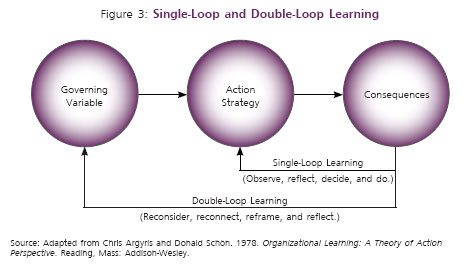At the end of the week where Julian Assange was locked up and everyone has been commenting on the value (or threat) of Wikileaks, I thought I would reflect on what I see is going on here.
Assange is a deep thinker – perhaps even an Autistic Savant.
In researching the subject I came across a quote which summarises what Assange is trying to do with Wikileaks (from piece of writing (via) (via):
“To radically shift regime behavior we must think clearly and boldly for if we have learned anything, it is that regimes do not want to be changed. We must think beyond those who have gone before us, and discover technological changes that embolden us with ways to act in which our forebears could not. Firstly we must understand what aspect of government or neocorporatist behavior we wish to change or remove. Secondly we must develop a way of thinking about this behavior that is strong enough carry us through the mire of politically distorted language, and into a position of clarity. Finally must use these insights to inspire within us and others a course of ennobling, and effective action.”
Julian Assange, “State and Terrorist Conspiracies”
It struck me that Julian Assange’s reasoning above was very similar to some of the ideas of another great thinker of our time – Chris Argyris.
I often use Argyris’ ideas (particularly single loop and double loop learning) in the work that I do – and I know that they have helped many others in creating effective change over the past fifty or so years.
For those who are interested, there is a good summary of Argyris’ work HERE.
Basically, Argyris outlines two two models – Model I (Single Loop Learning Organisation) and Model II (Double Loop Learning Organisation) to highlight the potential for organisational learning:
The governing Values of Model I (Single Loop Learning) are:
Achieve the purpose as the actor (or boss) defines it
Win, do not lose
Suppress negative feelings
Emphasise rationality
Primary Strategies are:
Control environment and task unilaterally
Protect self and others unilaterally
Usually operationalised by:
Unillustrated attributions and evaluations e.g.. “You seem unmotivated”
Advocating courses of action which discourage inquiry e.g.. “Lets not talk about the past, that’s over.”
Treating ones’ own views as obviously correct
Making covert attributions and evaluations
Face-saving moves such as leaving potentially embarrassing facts unstated
Consequences include:
Defensive relationships
Low freedom of choice
Reduced production of valid information
Little public testing of ideas
Most of the larger organisations that I consult with exhibit many, if not most of these Model I characteristics and I am sure that most governments around the world are not that much different. It is not unsurprising, therefore, that the current concerns over the latest Wikileaks are clouded in language that is imprecise and have overtones of Julian Assange being a “traitor” as well as the actions of Wikileaks being seen to be threatening to existing command and control establishments.
Aristotle had a similar set of ideas in his ethics.
He differentiated between technical thinking and practical thinking and the similarities with Argyris and Schön are striking…
In the article (Aristotle’s Etihcs) the two types of thinking are described:
“The former (technical thinking) involves following routines and some sort of preset plan – and is both less risky for the individual and the organization, and affords greater control.
The latter (practical thinking) is more creative and reflexive, and involves consideration notions of the good. Reflection here is more fundamental: the basic assumptions behind ideas or policies are confronted… hypotheses are publicly tested… processes are disconfirmable not self-seeking….”
So, in one sense, the Wikileaks drama is acting-out an age-old problem: How can we rise above the inadequacies of what Aristotle called “technical thinking“ within an organisational system and encourage more “practical (or ethical) thinking”. This is what Argyris called the attributes of Model I organisations and what Assange calls “the aspect(s) of government or neocorporatist behavior we wish to change or remove”.
Aristotle’s view was that the development of “practical wisdom” cannot be acquired solely by learning general rules. We must also acquire, through practice, those deliberative, emotional, and social skills that enable us to put our general understanding of well-being into practice in ways that are suitable to each occasion.
Interesting. Try and explain those ideas to someone with autism…
So enough of the analysis. What makes an effective learning organisation?
Argyris cites the following attributes for a Model II organisation:
The governing values of Model II (Double Loop Learning) include:
Valid information
Free and informed choice
Internal commitment
Strategies include:
Sharing control
Participation in design and implementation of action
Operationalised by:
Attribution and evaluation illustrated with relatively directly observable data
Surfacing conflicting view
Encouraging public testing of evaluations
Consequences should include:
Minimally defensive relationships
High freedom of choice
Increased likelihood of double-loop learning
Which brings us back to Julian Assange and Wikileaks. It is clear, for me, that Assange’s has developed a reasoned approach to changing the attributes of what might be called Big Government and Big Business. The main question for me, is, could he be more effective? Has he created his own Model I organisation to effect the changes he outlines he wants to achieve? Or is Wikileaks a new model II organisation for journalism that uses the internet to help change the belief system of the organisations that information is leaked about?
Argyris & Schön (Argyris, C., & Schön, D. (1978) Organizational learning: A theory of action perspective, Reading, Mass: Addison Wesley) say that change only comes through a collaboration between the change agent or interventionist and the Model 1 organisation. They suggests moving through six phases of work:
| Phase 1 | Mapping the problem as clients see it. This includes the factors and relationships that define the problem, and the relationship with the living systems of the organisation. |
| Phase 2 | The internalization of the map by clients. Through inquiry and confrontation the interventionists work with clients to develop a map for which clients can accept responsibility. However, it also needs to be comprehensive. |
| Phase 3 | Test the model. This involves looking at what ‘testable predictions’ can be derived from the map – and looking to practice and history to see if the predictions stand up. If they do not, the map has to be modified. |
| Phase 4 | Invent solutions to the problem and simulate them to explore their possible impact. |
| Phase 5 | Produce the intervention. |
| Phase 6 | Study the impact. This allows for the correction of errors as well as generating knowledge for future designs. If things work well under the conditions specified by the model, then the map is not disconfirmed. |
.
Given that most of the work that I do is, in one way or another, trying to deliver effective (and collaborative) change, I wonder whether the latest developments in the Wikileaks drama will become the most effective way to use modern internet technology to bring about the changes so vitally needed in this world to challenge the corruption, waste and continuation of so many Model I organisations…..
…….or whether there is another, better, more effective internet-based Type II model which creates a collaboration between the change agents and the Model I organisations to make the change happen more quickly and effectively….
I suppose only time (and more thinking and action) will tell……
Makes you think, anyway!







